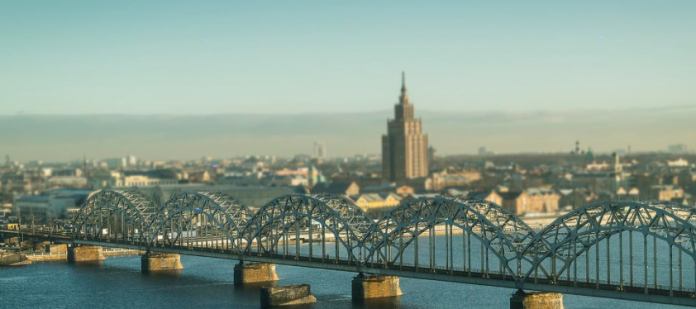Dear Friends,
We left you, in August, talking about a new arrival becoming part of our big Family, about fragile categories into our societies and their role, the European Week of Regions and Cities, and other interesting themes and questions. I hope you had the chance to read our reflections and to realise that, at the end, cooperation is at the heart of our daily activities, in any way we decide to define it.
The important is to make your voice heard. This is valid if we consider any of the most mentioned “themes” of the year: cohesion, digital transition, digital transition and citizens engagement. I am of the opinion that any change we want to realise or to see as a concrete result, has to start from a solid and strong base and, as you can imagine, I believe that our Fund for Regional Cooperation can be a valid base.
I was having a look at our RC website, before drafting this editorial, and realised this idea: everything starts from our commitment. If you have a look, we can see radicalisation prevention, climate change mitigation, different agricultural productions, migrations, gender issues, etc. And I invite you to read our friend Tom an interesting reflection about human rights, since they are – or should be – part of any future action. I am happy to see, through your contributions and reflections, that you are dealing with those topics as they were “touchable” into your daily work, even if sometimes they appear as abstract or too far from our societies. That is why I believe that we, being part of this big group, feel as “transnational citizens”, meaning that we are all part, and we fell as a part, of a worldwide changing society.
I believe that our Family is feeling part of this change, a world which is different than some years ago, but real.
And it is the more tangible the more it is perceived as part of us.
Who are, therefore, “transnational citizens”? This concept could refer to individual backgrounds, considering the extent to which their interactions and practices go beyond national borders to find common solutions in terms of good practices. Is this so different from how we should feel as part of the Fund for Regional Cooperation?
Unfortunately, when people do not participate in politics, one of the explanations is that they perceive institutions as too distant and technocratic. Our luck, within the Family we have built, is that we do have a chance. Or better, you have it and you keep demonstrating it naturally. I have used the adverb “naturally” since each of the activities we tried to organise for you has something to do with “natural”. Natural, for our Fund, is to be a Family; natural is the spontaneity that our Projects – together with our YE brother – have in clustering, identifying themselves into the Fund itself.
Therefore, and as demonstrated by your daily activities, cross-border actions become interconnections, and transnational exchange is an avenue for our expected goals to be perceived as supranational. This is the practical explanation of transnationalism and cross-border cooperation: the extent to which individuals (or Projects supported by singular individuals) are involved into interaction and mobility actions. And this doesn’t mean “politicisation” of our Fund; this is simply turning objectives into real actions. This is, in my opinion, the only way to see our activities as really engaged into glocaldecision-making processes.
This has not to do only with communication and showcasing. It has to do with the spirit laying at the heart of the Fund. And it is for that reason that we have always tried to give you the right space to your natural commitment through collaboration and cooperation.
This is why we officially leave “the ball” to our RC Projects, as we say in Italy. This ball is intended to be a chance for you to explain to our public what being a Regional Cooperation Project means, including, of course, the relationship and the exchange existing with the Fund for Youth Employment.
We are organising a virtual meeting and space for debate the next December, an opportunity to turn into concrete examples your good practices involving your audiences. We have been forced to think virtually, so let’s take advantage of it. I believe that this will be the opportunity to turn into real practice your natural tendency to union, cohesion and cooperation, in one-word clusterisation, a term I like to use when thinking to the typical propensities of our Family.
Gian Luca Bombarda
FO Director


